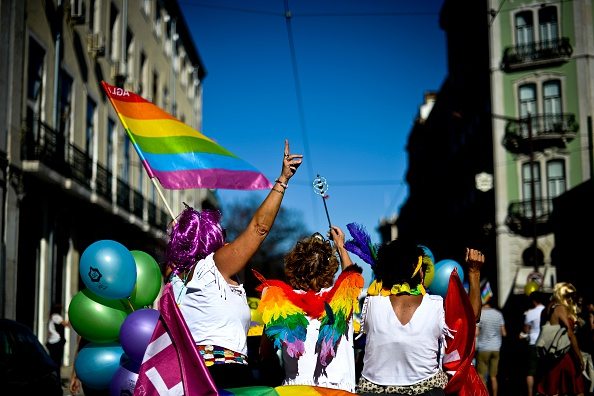Where will the Eurovision Song Contest 2018 take place?

The Eurovision Song Contest will be heading to Lisbon next year, Portugal’s broadcaster has confirmed.
The camp pan-European music contest took place in Kyiv, Ukraine last weekend.
Portuguese singer Salvador Sobral took the trophy after topping the leaderboard with a massive 758 points – winning both the jury vote and the public votes with emotional ballad Amar pelos dois.
The winning country is traditionally offered the right to host the next contest, and Portugal’s Rádio e Televisão de Portugal has confirmed the contest will be heading to sunnier shores in 2018.

A reveler holds a rainbow flag and balloons during the Gay Pride Parade in Lisbon on June 18, 2016. / AFP / PATRICIA DE MELO MOREIRA (Photo credit should read PATRICIA DE MELO MOREIRA/AFP/Getty Images)
RTP confirmed in a statement that Portugal’s capital city Lisbon would be as the host city for the 2018 edition.
Early planning is already underway for the contest, which is expected to take place in May 2018.
The broadcaster wrote: “It is certain that Lisbon will [be hosting] the contest in 2018.
“The venue for the next edition of the Eurovision Song Contest has not yet been chosen.
“Portugal is the host country and RTP has already put in place a year-long plan [for organising the contest]
“The organisation of the Eurovision Song Contest festival will involvean investment of millions of euros, but the total [cost of hosting] in Portugal is not yet known.”
The contest’s LGBT fanbase will likely get a warm welcome in Lisbon, which has a thriving LGBT scene and Pride celebrations.
Portugal is relatively liberal on LGBT rights.
It is one of only a few countries in the world that maintains a Constitution protecting people from discrimination based on sexual orientation.
Portugal was the eighth country in the world to pass same-sex marriage, back in 2010, and recent years have also seen gender recognition laws and same-sex adoption approved.
The details of the 2018 contest will be ironed out in the coming months.
The participation of Russia and Ukraine will be a point of contention, with the European Broadcasting Union considering action against both countries over a spat during this year’s contest.
Russia sat out Eurovision in 2017 after Ukraine banned their singer from entering the country.
Ukraine insisted the response was proportionate because singer had illegally entered the Russian-occupied Ukrainian territory of Crimea – but both countries could face sanctions over the row.

